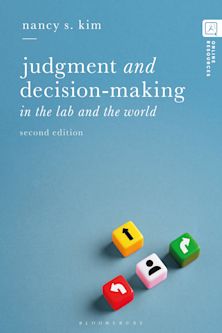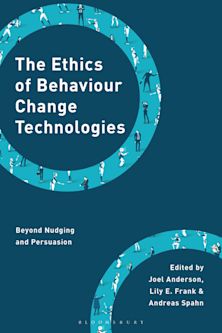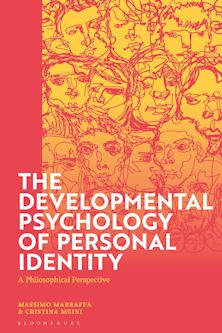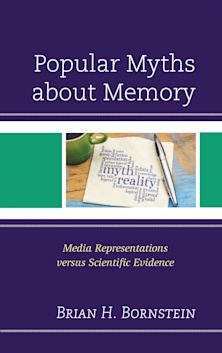- Home
- ACADEMIC
- Psychology
- Cognitive Psychology
- Fragments of Trauma and the Social Production of Suffering
Fragments of Trauma and the Social Production of Suffering
Trauma, History, and Memory
Michael O'Loughlin (Anthology Editor) , Marilyn Charles (Anthology Editor) , Judy Atkinson (Contributor) , Claude Barbre (Contributor) , Marilyn Charles (Contributor) , Avigail Gordon (Contributor) , Marie C. Hansen (Contributor) , Richard T. Johnson (Contributor) , Ingo Lambrecht (Contributor) , Karen L. Lombardi (Contributor) , Barbara Ann McLeod (Contributor) , Jeff Moore (Contributor) , Cate Osborn (Contributor) , Michael O'Loughlin (Contributor) , Trisha Ready (Contributor) , Michael B. Salzman (Contributor) , Cora Smith (Contributor) , Annie Stopford (Contributor) , Christine Thornton (Contributor) , Kirkland C. Vaughans (Contributor) , Janice A. Walters (Contributor)
Fragments of Trauma and the Social Production of Suffering
Trauma, History, and Memory
Michael O'Loughlin (Anthology Editor) , Marilyn Charles (Anthology Editor) , Judy Atkinson (Contributor) , Claude Barbre (Contributor) , Marilyn Charles (Contributor) , Avigail Gordon (Contributor) , Marie C. Hansen (Contributor) , Richard T. Johnson (Contributor) , Ingo Lambrecht (Contributor) , Karen L. Lombardi (Contributor) , Barbara Ann McLeod (Contributor) , Jeff Moore (Contributor) , Cate Osborn (Contributor) , Michael O'Loughlin (Contributor) , Trisha Ready (Contributor) , Michael B. Salzman (Contributor) , Cora Smith (Contributor) , Annie Stopford (Contributor) , Christine Thornton (Contributor) , Kirkland C. Vaughans (Contributor) , Janice A. Walters (Contributor)
You must sign in to add this item to your wishlist. Please sign in or create an account
Description
Fragments of Trauma and the Social Production of Suffering: Trauma, History, and Memory offers a kaleidoscope of perspectives that highlight the problem of traumatic memory. Because trauma fragments memory, storytelling is impeded by what is unknowable and what is unspeakable. Each of the contributors tackles the problem of narrativizing memory that is constructed from fragments that have been passed along the generations. When trauma is cultural as well as personal, it becomes even more invisible, as each generation’s attempts at coping push the pain further below the surface. Consequently, that pain becomes increasingly ineffable, haunting succeeding generations. In each story the contributors offer, there emerges the theme of difference, a difference that turns back on itself and makes an accusation. Themes of knowing and unknowing show the terrible toll that trauma takes when there is no one with whom the trauma can be acknowledged and worked through. In the face of utter lack of recognition, what might be known together becomes hidden. Our failure to speak to these unaspirated truths becomes a betrayal of self and also of others. In the case of intergenerational and cultural trauma, we betray not only our ancestors but also the future generations to come. In the face of unacknowledged trauma, this book reveals that we are confronted with the perennial choice of speaking or becoming complicit in our silence.
Table of Contents
Introduction, Marilyn Charles & Michael O’Loughlin
Part I Fragments of Trauma
Chapter 1: Trauma, Fragmentation, Memory, and Identity, Marilyn Charles
Chapter 2: Healing Transgressions of Tapu: Re-Membering the Body Sacred, Ingo Lambrecht
Chapter 3: Black Maids-White Madams and the Ghosts in the Nurseries of Post-apartheid South Africa, Cora Smith
Chapter 4: The Lifelong Impact of Institutional Childhood Abuse: The Perspective of the Irish in Britain, Jeff Moore & Christine Thornton
Chapter 5: Django Unchained: Identification with the Oppressor and Traumatic Reenactment, Claude Barbre
Chapter 6: Trauma and Resilience among a Stolen Generation of Indigenous People, Janice Walters
Chapter 7: The Subtle Trauma: Premenstrual Syndrome, Language, and Subjectivity , Marie Hansen
Part II Interventions in Social Spaces
Chapter 8: Life after “Death:” An Empirical and Clinical Perspective on Trauma, Karen Lombardi & Avigail Gordon
Chapter 9: Sounding Home: Using Music to Help Bear Witness and with Expression of Trauma for Patients with Psychosis, Trisha Ready
Chapter 10: A Good Little Group: Recovering Lost Connections between Aboriginal Mothers and Children, Cate Osborn
Chapter 11: When Trauma is Normal: Violence, Creativity, and Healing Relationships in a Distressed African American Urban Neighborhood , Annie Stopford
Chapter 12: Trauma and Identity in Teacher Education Spaces, Richard Johnson & Michael Salzman
Chapter 13: Making Sense of the Senseless: Feeling Bad, Being Mad, Getting Charged Up, Judy Atkinson
Chapter 14: To Unchain Haunting Blood Memories: Intergenerational Trauma Among African Americans, Kirkland C. Vaughans
Chapter 15: “Thinking Beyond Our Means:” Engendering a Depth Understanding of Trauma, Michael O’Loughlin & Barbara Ann McLeod
Product details
| Published | 05 Nov 2014 |
|---|---|
| Format | Ebook (PDF) |
| Edition | 1st |
| Extent | 1 |
| ISBN | 9798216238164 |
| Imprint | Rowman & Littlefield |
| Illustrations | 1 b/w photo |
| Series | New Imago |
| Publisher | Bloomsbury Publishing |
About the contributors
Reviews
-
This book breaks new ground in work on intergenerational transmission of trauma. It not only offers a multitude of ways of understanding how trauma is passed on, but it brings theory compellingly alive by embedding it in a diverse and international array of sociocultural situations. The diversity itself allows readers to appreciate and experience the complex and painful ways that passed-on traumas are lived and communicated to those who bear witness.
Lynne Layton, Harvard Medical School
-
This is an indispensable book for anyone interested in how innovatively-applied psychoanalytical thinking can be profoundly but also practically useful. Trauma fragments memory and disables the cohering power of narrative. In this volume, highly skilled editors have facilitated the coming together of clinicians and consummate storytellers who have found ways to help traumatized individuals reconnect with and make sense of their lost and incoherent personal narratives. Working with the trauma in disparate cultures and across mute generations to help people 'live well and with integrity' may better be facilitated.
Sue Wallace, Senior Adult Psychotherapist, National Health Service Greater Glasgow and Clyde
-
Fragments of Trauma is an important collection. Powerful and frequently unsettling, its chapters address experiences of trauma in settings from around the world: Maori communities in New Zealand, impoverished African-American neighbourhoods in the US, Irish immigrants in the UK, and many others. Uncompromising in its insistence that the psychic, social and historical dimensions of trauma cannot be separated, the book should be read by clinicians, social scientists and anyone who wants to grasp the continuing relevance of psychoanalysis to our understanding of social problems, as well as to overwhelming personal suffering and pain.
Peter Redman, Editor of Psychoanalysis, Culture and Society



































